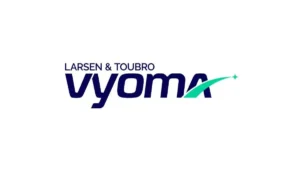Ludovit Odor Assumes Office as Slovakia’s Caretaker Prime Minister:
Ludovit Odor, a former Vice-Governor of the National Bank of Slovakia, has been appointed as Slovakia’s new caretaker Prime Minister. Following the resignation of former caretaker Prime Minister Eduard Heger on May 7, Slovak President Zuzana Caputova entrusted Odor with the responsibility of leading the country until the snap elections scheduled for September. In his inaugural address, Odor expressed his commitment to bringing calm and professionalism to the governance of Slovakia.
Buy Prime Test Series for all Banking, SSC, Insurance & other exams
Aim for Proper Functioning of the State Until Snap Elections:
Taking on his new role, Prime Minister Ludovit Odor emphasized the importance of ensuring the proper functioning of the state until the upcoming snap elections. With his background in the National Bank of Slovakia, Odor brings extensive experience in financial matters to the table. His government intends to prioritize stability, tolerance, and civil discourse, aiming to set an example that alternative approaches can yield positive outcomes.
Building Calm, Stability, and Civilized Discussions:
One of the primary objectives of Prime Minister Ludovit Odor’s caretaker government is to foster an atmosphere of calm and stability in Slovakia. This goal comes in response to the recent resignations of Acting Agriculture Minister Samuel Vlcan and Foreign Affairs Minister Rastislav Kacer, which prompted Heger’s decision to step down. Odor aims to restore faith in the government and promote a culture of civilized discussions, emphasizing that disagreements can be addressed constructively.
Continuity and Preparation for Snap Elections:
As Slovakia gears up for snap elections in September, Prime Minister Ludovit Odor’s government will work towards maintaining continuity in the functioning of the state. While acting as a caretaker administration, they will handle crucial tasks, uphold governmental processes, and ensure smooth governance. At the same time, preparations will be made for the upcoming elections, laying the foundation for a seamless transition of power and a strong democratic process.
With Ludovit Odor at the helm, Slovakia looks forward to a period of stability and efficient governance until the snap elections, as the caretaker government strives to demonstrate the potential for constructive and civilized discussions in shaping the country’s future.
About Slovakia, key points:
-
Currency: The currency of Slovakia is the Euro (€). Slovakia adopted the Euro as its official currency on January 1, 2009, replacing the Slovak koruna.
- President: The President of Slovakia is Zuzana Čaputová. She assumed office on June 15, 2019, becoming the first woman to hold the position. The President of Slovakia serves as the head of state and is elected by popular vote for a term of five years.
- Capital: The capital city of Slovakia is Bratislava. It is located in the southwestern part of the country, near the borders with Austria and Hungary. Bratislava is the largest city in Slovakia and serves as the political, cultural, and economic center of the country.
- Official Language: The official language of Slovakia is Slovak. It belongs to the West Slavic branch of the Slavic languages and is spoken by the majority of the population. Hungarian is recognized as a minority language in certain areas of the country.
- Government: Slovakia is a parliamentary republic with a multi-party system. The government operates under a democratic framework, where the Prime Minister serves as the head of government. The National Council of the Slovak Republic is the unicameral parliament of the country.
-
Population and Geography: Slovakia is a landlocked country in Central Europe. It has a population of approximately 5.5 million people. The country is known for its diverse landscapes, including the Carpathian Mountains, lowlands, and numerous rivers. The Tatra Mountains, located in the northern part of the country, are a popular destination for outdoor activities and tourism.
-
EU and NATO Member: Slovakia became a member of the European Union (EU) on May 1, 2004. It is also a member of the eurozone and uses the Euro as its currency. Additionally, Slovakia is a member of the North Atlantic Treaty Organization (NATO) since 2004.
Also Read: India, Canada agree to increase discussions on movement of skilled professionals, students




 Which District is known as the Medical C...
Which District is known as the Medical C...
 Which was the First Women's University i...
Which was the First Women's University i...
 L&T Vyoma to Study 250 MW Green AI D...
L&T Vyoma to Study 250 MW Green AI D...








